21 Reasons For Weight Gain & Tips To Manage It Effectively
Understanding the science behind gaining those pounds is essential to managing it effectively.

Image: shutter stock
There are many reasons for weight gain. You may wonder how this happened, especially if you are cautious about your weight. A variety of factors can contribute to weight gain, including aging, medical conditions, medication side effects, an inactive lifestyle, and not getting enough sleep. If you have already considered these factors and are still unclear how you have added extra pounds, this article is for you.

Weight gain is generally caused by energy imbalances between the number of calories consumed and the amount we expend (1). This article lists 21 reasons for weight gain and offers tips on managing the problem effectively. Read on to solve your weight gain problem and get your life back on track.
In This Article
Top 21 Reasons For Weight Gain
1. Body Type
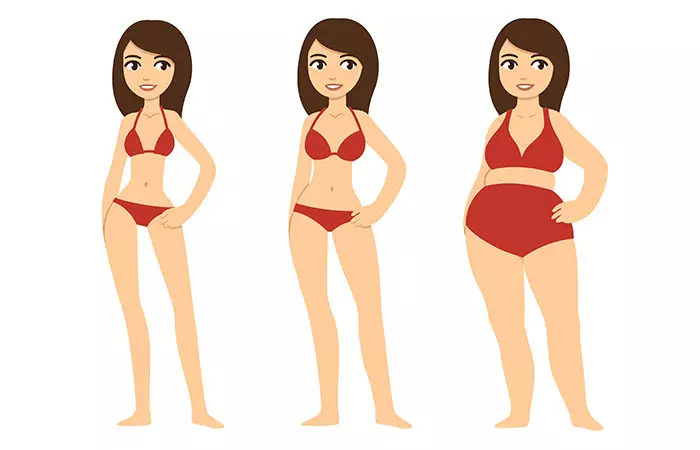
Body type plays a vital role when it comes to weight gain. Those who have a mesomorphic body type tend to gain weight quickly, but they also lose weight faster. However, the worst victims are those with endomorphic body type. Endomorphs tend to gain weight quickly and need to work real hard to lose the same.
Solution – If you have an endomorphic body type, workout regularly and eat a lot of green leafy veggies.
2. Depression

Major depression is more prevalent in women than in men, with a global annual prevalence of 5.5% and 3.2% in 2010, showing a 1.7-fold higher incidence in women, as reported in studies (2). Depression is a real world problem and is the leading for weight gain in many people (3). Also, the antidepressants can cause weight gain too (4). Therefore, it’s essential to consult a doctor and follow the suggestions while prioritizing your mental health if you’re experiencing weight gain due to antidepressants.
A French study on 1,045,682 subjects from 5,627 French geographic areas, shows a bidirectional relationship between obesity and depression. 707,680 of the subjects had an obesity-related diagnosis, while 338,002 were reported to have depression. The condition of both groups of patients was studied based on their spatial habitats, and their mutual interactions were observed. In mutual conditions, the average risk of declining primary condition was 33% for depression and 34% for obesity.
Weight gain and depression may affect each other in a vicious cycle. When you gain weight, you may get depressed. But, in order to feel happy, some people with depression end up eating more, in turn gaining more weight. Annie, a blogger confined to a wheelchair with persistent foot issues due to weight gain, expressed the harsh reality of her ten-month struggle. She writes, “When I’m depressed, I eat, and over the past 10 months have managed to regain all the weight that I worked so hard to lose… But I’m eating too much of the wrong things… Let’s face it – I’m not feeling joy in a whole lot of things right now, and food brings comfort even when it causes discomfort (i).”
Solution – Depression can only be treated when you want to get better. Push yourself to do what you like and things that make you happy. Working out is the best way to treat depression without taking anti-depressants. Start playing a sport, join arts and crafts classes, and travel. If you don’t have a friend to confide in, you can record your feelings in a diary or a book. This will take pressure off your shoulder.
3. Stress

Stress causes weight loss in some individuals, while others may experience significant weight gain. It’s because stress may lead to emotional eating which ultimately results in weight gain. Be it stress at work or home; stress induces the secretion of the cortisol hormone, which increases appetite (5). An increased appetite will make you choose junk and comfort food over healthy foods.
Solution – To manage stress you can try meditation, yoga, Chinese medicines, acupuncturei A type of traditional Chinese medicine that involves inserting thin needles into the skin to treat chronic pain. , aromatherapy, and cognitive behavioral therapy. Depending on the severity of the situation, your doctor may also suggest medication.
4. Thyroid Imbalance

The thyroid plays an important role in growth and metabolism. It produces three hormones, T3, T4, and calcitonini A hormone produced by the thyroid gland which helps regulate calcium levels in the blood by decreasing it. . T3 and T4 are actual thyroid hormones, and when these hormones are produced less, it leads to the condition hypothyroidism. Hypothyroidism is characterized by weight gain as the metabolism slows down (6). So if you have suddenly gained weight, you should get your thyroid test done immediately.
Solution – This condition can be treated by taking hormone replacement medicine, levothyroxine. You can also try simple home remedies such as consuming fewer simple carbs, consuming less salt, and drinking fenugreek soaked water.
5. Unhealthy Food Choices

Unhealthy foods contain high sodium, artificial food color, trans fats, and are high in carbs. Though it tastes good, it puts your health at risk of being overweight, developing heart disease, diabetes, and cancer. Eating out almost every day or eating processed food is another reason why you gain weight quickly.
Solution – Prepare your meals at home at least five days a week. You can chop the veggies on weekdays and store them in zip lock bags. You should also avoid buying any food items that contain high salt, simple carbs, and processed foods from the supermarket. Buy lean meat such as chicken breast, ground turkey, and fish. Eat multigrain bread, wheat pasta and noodle, quinoa, celery, broccoli, eggs, herbs, cinnamon, black pepper, citrus fruits, green leafy veggies, almonds, fish oil, tofu, olive oil, fat-free milk, soy milk, lentils, and dark chocolate.
 Quick Tip
Quick Tip6. Large Portion Sizes

My friends often tell me how they are struggling to lose weight even after eating healthy. The problem is they do not control the portion size. To lose weight you have to control the portion size. Eating too much food and not expending the energy again causes the energy imbalance and therefore you gain weight.
Solution – Take a portion size as big as your palm. Half of your plate should contain veggies, the third quarter of your plate should have lean protein, and the rest of the plate should contain complex carbs and fiber rich foods. You can have 3-4 servings of veggies and fruits every day. Consume 4-6 soaked almonds in the morning. Nuts provide energy that lasts through the day.
 Quick Tip
Quick Tip7. Inactive Lifestyle

Technology has made us all lazy. We seldom get up from the couch or bed if a computer or TV is in front of us. Even kids prefer Xbox or PlayStation over playing outdoor games. This probably is the reason why many youngsters are falling prey to lifestyle diseases. Without allowing your body to use the energy you consume, you will gain weight and will find it quite tough to lose the fat.
Solution – Play outdoor games, go for Zumba or any other dance class, take a break from your work every hour to walk around, cycle or walk to the office, and go on hikes.
8. Medicines
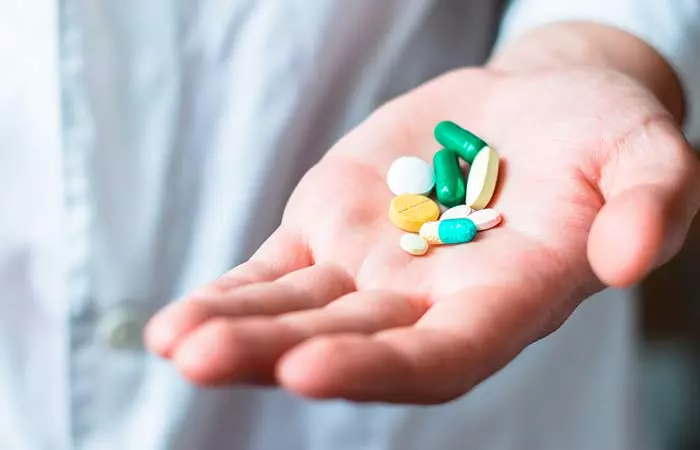
A lot of medicines we have comes with side effects. Weight gain is one of them. Medications for treating depression, migraine, steroids, allergy, Type II Diabetes, blood pressure, birth control, and seizure can cause sudden weight gain.
Solution – Talk to your doctor to know if there are other drugs in the market that won’t affect your weight much as compared to the presently prescribed medicine. Join a gym, take steam, eat healthily, and get proper rest.
9. Menopause

Menopause brings down estrogen levels in your body. Lower the estrogen levels slower the metabolic rate. The body fails to use up starch and sugar as energy. And this gets stored in the body, especially the mid-body region, as fat (7).
Solution – You can take doctor-prescribed estrogen tablets, drink green tea, exercise and keep yourself active. Include kidney beans and black-eyed peas in your diet, use cinnamon and black pepper for flavor, and get at least seven hours of sleep.
10. Digestive Problems

The cure for a lot of diseases lies in the gut. If you are suffering from gut problems, you will gain weight. It can be due to an unhealthy diet, overeating, not drinking enough water, high alcohol consumption, or lack of good gut bacteria.
Solution – Include yogurt, buttermilk, probiotic drinks, ginger, high fiber foods, fresh fruit juices, and detox drinks. Make it a habit of drinking at least 1 cup of warm water as soon as you wake up in the morning. Also, drink 3-4 liters of water every day. This will help in proper bowel movement.
11. Pregnancy

During pregnancy, women tend to undergo a lot of changes hormonally and physically. The cravings are tough to control. Moreover, women are advised to eat as much as they can as they are eating for two! Women also tend to gain more weight during the last (third) trimester. A few women lose weight during breastfeeding while others don’t. In fact, gaining so much weight suddenly can cause complications in the pregnancy. Moreover, such women also find it hard to lose weight post childbirth.
Solution – Talk to your doctor to know exactly how much food you should consume. You can also join yoga classes for pregnant women. Follow these recommended guidelines to prevent weight gain (8).
12. Genes And Environment

There are many genes that have been linked to weight gain. Scientists say that family history of obesity is a critical factor for people to have suddenly gained weight or are at the risk of gaining weight. However, the environment plays a key role too. If a family follows unhealthy eating habits and leads a sedentary lifestyle, the next generation would also probably do the same. And that could be the reason for weight gain.
Solution – Completely avoid eating junk food, eatables are high in sodium, trans fat, fried and greasy. Also, start working out. Weigh yourself every 1-2 months to keep a check on your weight. You can have one cheat day per week.
13. Age
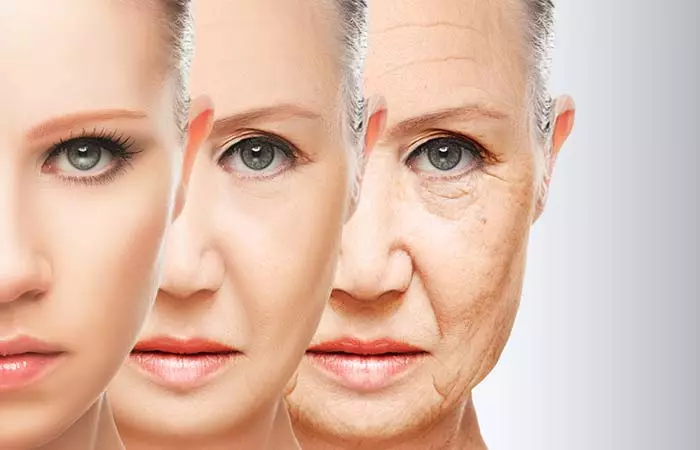
Women start losing muscle mass soon as they reach 30. Muscle loss slows down metabolism. Levels of hormones such as thyroid, estrogen, progesterone, and testosterone also decline. There is also less activity and more stress as we age which contributes to weight gain.
Solution – Do not stop working out. Join a gym today and do a mix of cardio and resistance training. It will help build muscle mass and maintain hormonal balance. Listening to music and meditate to de-stress. Also, include fat-free milk, spinach, lean protein, healthy fats, and complex carbs in your diet.
14. Consuming Excess Alcohol

Alcohol is also one of the biggest contributors to excess fat. Alcohol gets broken down to sugar molecules in the body. When there is no physical activity, this sugar gets converted to fat, which is stored in various parts of our body. Binge drinking leads to fat deposition in the liver which causes fatty liver.
Solution – Cut down your alcohol intake. Avoid hanging around with people who regularly drink or those who encourage excess alcohol consumption. It may sound harsh, but you must make health a priority. Of course, you can continue to attend parties, but your alcohol intake must not exceed two drinks. Sip it slow to prevent consuming more.
 Quick Tip
Quick Tip15. Less Sleep

Scientists have found that sleep deprivation can cause weight gain. Since sleep modulates glucose metabolism and neuroendocrine functioni The interactions between the endocrine and the nervous systems that help regulate bodily functions like appetite and energy balance. , sleep deprivation leads to decreased insulin sensitivity and glucose tolerance. It also decreases leptini A hormone released by the fat tissues to regulate fat storage and help maintain a healthy weight on a long-term basis. which results in increased hunger and appetite (9).
Solution – Ensure there’s gap of at least 2-3 hours between your dinner and bed time. Relax by listening to music or reading a novel. Put all your worries away and sleep comfortably in a well-made bed. Sleep at least 7 hours to give your body proper rest. Wake up early, so you get the time to workout and eat a substantial breakfast before you head out.
16. Crash Diet

Crash diets don’t work for most women. The very-low-calorie diets, in turn, lead to weight gain. This is because the body goes into an epidemic mode and starts storing the consumed calories as fat. So basically you will put on weight instead of losing it.
Solution – Stop being on crash diets for too long. It not only adds kilos but also leads to many health problems. Eat healthy and workout regularly to lose weight.
17. Ignoring Healthy Fats
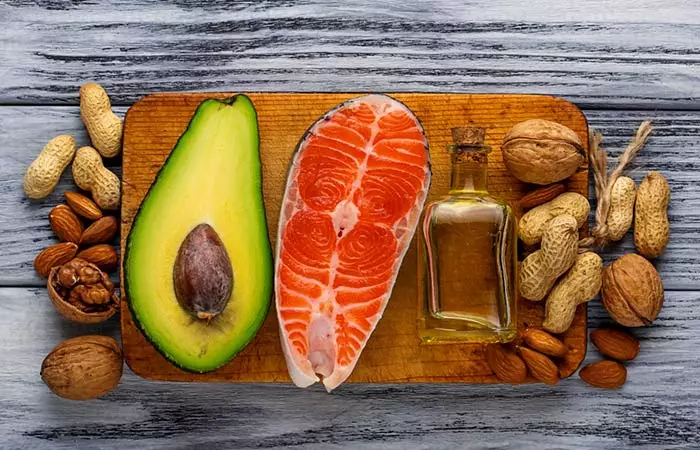
Not all fats are bad. Healthy fats can cut inflammation. This can cause weight gain by decreasing leptin secretion. A reduced leptin causes increased appetite and food cravings and results in weight gain.
Solution – Eat almonds, walnuts, macadamia nuts, peanut butter, avocado, fish, and fish oil supplements.
18. Using Too Much Salt
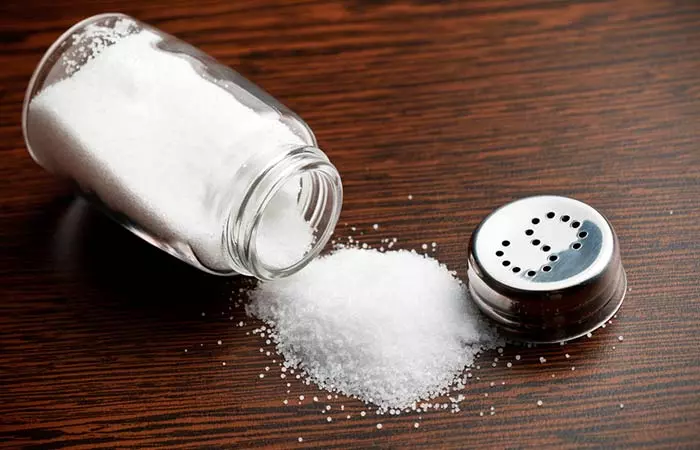
Using too much salt leads to weight gain because of water retention in the body. Consuming too many processed foods, eating out, eating potato wafers, fries, and pickles can lead to water retention and bloating.
Solution – Avoid eating out and cut all junk food. Also, use less salt when you cook at home to prevent water retention. Include a flexible workout and diet plan to lose water weight.
19. Late Night Snacking

When you stay up late at night, your food craving kicks in after 2-3 hours. Instead of opting for a healthy snack, you indulge in ice cream or a big bag of potato wafers. The high sugar, high sodium, and trans fats retain water and also get stored as fat.
Solution – Sleep within 2-3 hours after dinner. Brush your teeth soon after dinner. How does this help? Well, most people have a tendency to avoid eating after cleaning their teeth. Moreover, you feel too lazy to brush again, and that should be enough reason for you to stay away from food!
20. Lack Of Commitment To Weight Loss

Last on the list, but this is perhaps the most critical reason for you not losing weight. No matter how much you want to lose weight, unless you are committed to working towards your weight loss goals, it’s impossible to make that happen. You cannot blame diet or environment for your weight gain if you are not determined enough. If you want to lose weight, work hard.
Solution – Write your goals down, hire a trainer or workout at home, consult a dietitian or use diet software available for free, download a health app for guidance, talk to your friends who regularly workout, play a sport, and be active.
21. Underlying Diseases
Certain underlying medical conditions may also contribute to weight gain. Some of the most common ones include:
- Cushing’s Syndrome: This is a rare hormonal disorder that occurs when the body is exposed to too much cortisol (stress hormone) for a long period of time. It may lead to fat accumulation over time, especially in the face and abdomen (11).
- Polycystic Ovary Syndrome (PCOS): This is a hormonal disorder that causes small cysts on the ovaries and may include symptoms like menstrual irregularities, excess body hair, and acne. It often disrupts insulin regulation, leading to insulin resistance, which is linked to obesity (12).
- Sleep Apnea: This is a serious sleep disorder that results in repeated episodes of breathing interruptions during sleep. This may result in poor sleep quality that may disrupt your hunger, leading to overeating and weight gain (14).
Solution –
If you suspect that an underlying medical condition is contributing to your weight gain, consult a healthcare provider. They can help diagnose the condition and recommend appropriate treatments. These may include medications, diet adjustments, lifestyle changes, or further medical interventions.
While these general recommendations can help you cope with your sudden weight gain, some cases require medical intervention. Learn more about them below.
Key Takeaways
- Body shape, metabolism, and weight are all determined by genetics and influenced by lifestyle choices.
- Sedentary lifestyles and poor eating habits are major contributors to weight gain, hence, try to avoid junk food and start working out.
- Sleep deprivation may lead to weight gain, therefore, 7 hours of sleep is important.
- Cut down alcohol intake as overconsumption of alcohol is also a reason for weight gain.
When To See A Doctor For Weight Gain
If you have experienced significant and unexplained weight gain, consult a healthcare professional. This is because your sudden weight gain may be due to the underlying health issues specified above.
Visit your doctor if your weight gain is accompanied by symptoms such as fatigue, irregular menstruation, or changes in appetite. Your doctor may perform a thorough evaluation and ask you to get some blood tests done to understand your condition. Once the results are in, they will provide personalized guidance on lifestyle adjustments or medical interventions to help you mitigate the weight gain.
Infographic: 6 Health Conditions That Can Cause Weight Gain
Weight gain is not always a product of overeating and inadequate exercise. It may also result from certain health conditions that affect metabolism, fat distribution in the body, energy usage, or hormonal balance.
Check out the infographic to learn about 6 common health conditions that may lead to weight gain.
Some thing wrong with infographic shortcode. please verify shortcode syntax
There are many reasons for weight gain that can hint at certain imbalances in the body. Whether it is hormonal fluctuations, thyroid imbalances, water retention, sleep disturbances, or any medication’s side effects, it is important to know the root cause behind any sudden weight gain. Stress and emotional eating can also lead to fast weight gain. Sticking to a routine of sleep, work, food, and fitness would help resolve any irregularities sooner than later. While age, gender, menopause, or pregnancy can all lead to some amount of weight gain, it is important to share all the details with your doctor and get the cause confirmed.
Frequently Asked Questions
Why am I gaining weight so fast in my stomach?
Stress, poor diet, certain medications, lack of sleep, and a sedentary lifestyle may lead to the accumulation of belly fat.
Why am I eating less and gaining weight?
Despite of your best efforts to maintain a healthy diet, factors such as psychological well-being, hormonal imbalance, and the use of certain medications can lead to weight gain.
What diseases cause weight gain?
Diseases that cause weight gain include hypothyroidism, Cushing’s syndrome, PCOS, depression, and sleep apnea.
What does hormonal weight gain look like?
Hormonal weight gain symptoms can include an increase in body fat, fluid retention, increased appetite and cravings, fatigue, and changes in menstrual cycles in women.
Illustration: Reasons For Weight Gain & Tips To Manage It Effectively
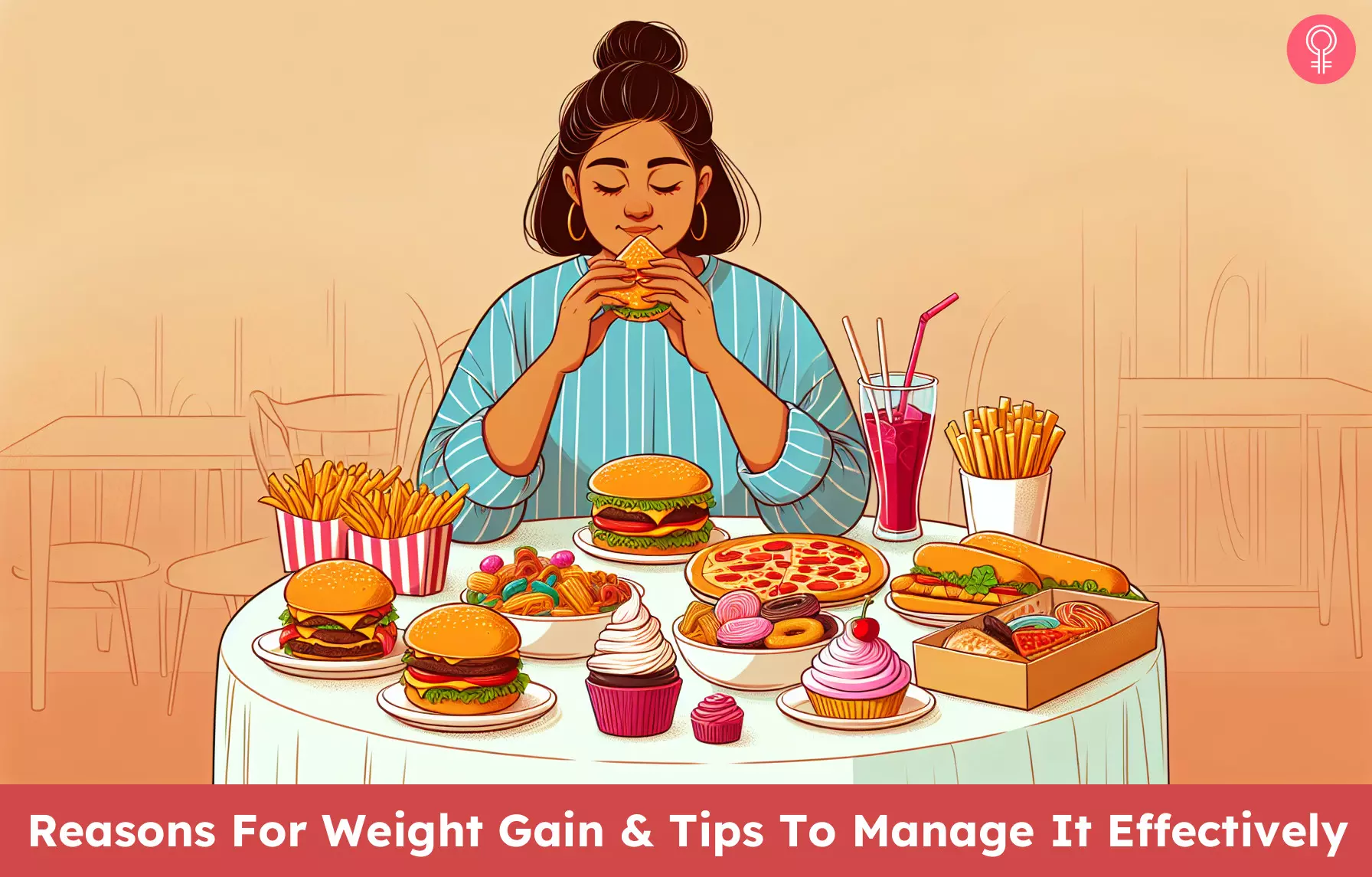
Image: Dall·E/StyleCraze Design Team
Struggling with sudden weight gain? Explore 10 medical causes that could be behind it in this informative video. Watch now and unravel the mystery!
Personal Experience: Source
StyleCraze's articles are interwoven with authentic personal narratives that provide depth and resonance to our content. Below are the sources of the personal accounts referenced in this article.
i. I fell apart todayhttps://altopower.wordpress.com/2025/05/31/i-fell-apart-today/
References
Articles on StyleCraze are backed by verified information from peer-reviewed and academic research papers, reputed organizations, research institutions, and medical associations to ensure accuracy and relevance. Read our editorial policy to learn more.
- Obesity
https://www.ncbi.nlm.nih.gov/books/NBK459357/ - Why is depression more prevalent in women?
https://www.ncbi.nlm.nih.gov/pmc/articles/PMC4478054/ - Depressive Symptoms Are Associated with Weight Gain Among Women
https://www.ncbi.nlm.nih.gov/pmc/articles/PMC3439550/ - Weight gain and antidepressants
https://pubmed.ncbi.nlm.nih.gov/10926053/ - Stress and Obesity
https://pubmed.ncbi.nlm.nih.gov/29927688/ - How does the thyroid gland work?
https://www.ncbi.nlm.nih.gov/books/NBK279388/ - Weight, Shape, and Body Composition Changes at Menopause
https://www.ncbi.nlm.nih.gov/pmc/articles/PMC8569454/ - Pregnancy and birth: Weight gain in pregnancy
https://www.ncbi.nlm.nih.gov/pmc/articles/PMC3632337/ - Sleep and obesity
https://www.ncbi.nlm.nih.gov/pmc/articles/PMC3632337/ - Hypothyroidism and obesity: An intriguing link
https://pmc.ncbi.nlm.nih.gov/articles/PMC4911848/ - Physiology cortisol
https://www.ncbi.nlm.nih.gov/books/NBK538239/ - Polycystic ovary syndrome insulin resistance and obesity: Navigating the pathophysiologic labyrinth
https://pmc.ncbi.nlm.nih.gov/articles/PMC4334071/ - Dietary habits depression and obesity: an intricate relationship to explore in pediatric preventive strategies
https://pmc.ncbi.nlm.nih.gov/articles/PMC10957686/ - Interactions between obesity and obstructive sleep apnea
https://pmc.ncbi.nlm.nih.gov/articles/PMC3021364/
Read full bio of Merlin Annie Raj
Read full bio of Ravi Teja Tadimalla
Read full bio of Payal Karnik













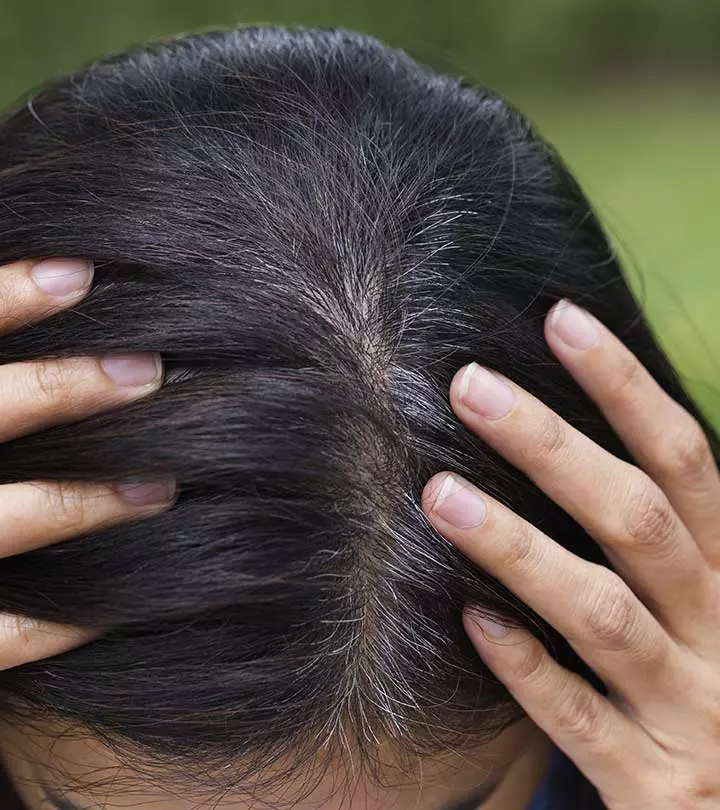
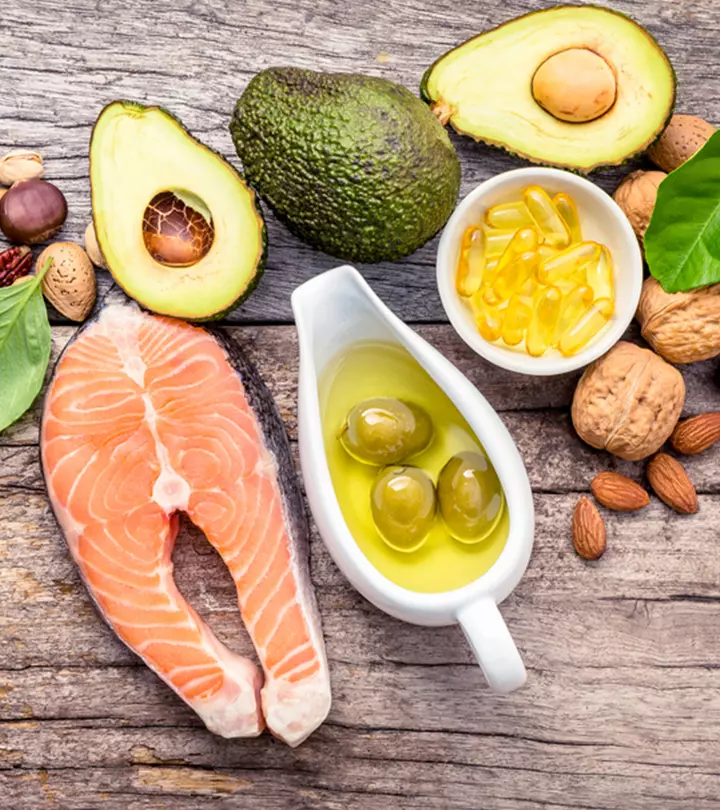












Community Experiences
Join the conversation and become a part of our empowering community! Share your stories, experiences, and insights to connect with other beauty, lifestyle, and health enthusiasts.